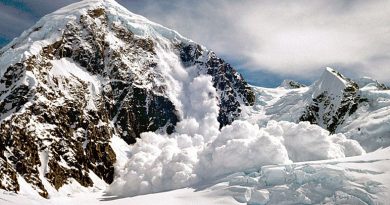Alaska senator wants more offshore oil leasing, revenue sharing

A bill introduced by Alaska Senator Lisa Murkowski would expand oil exploration in the waters off Alaska, extend the life of existing oil leases and institute a revenue-sharing program.
The revenue-sharing provisions, which would be phased in in two stages over the course of about a decade, would ultimately direct 37.5 percent of revenues to the state and local governments with 12.5 percent reserved for low-income heating subsidies, weatherization and Arctic infrastructure. The other 50 percent would go to the U.S. Treasury.
Murkowski’s bill is one of three new measures that would expand revenue sharing, the other two dealing with the Atlantic Coast and the states along the Gulf of Mexico.
Under current law, the state does not receive revenue sharing from sales that cover territory more than 6 miles offshore.
The Obama administration has opposed such measures, arguing that they would drain billions from the federal government and increase the deficit.
Focus on Beaufort, Chukchi seas
Murkowski’s bill, S. 1278, would require at least three offshore oil lease sales in both the Beaufort and Chukchi seas over any five-year period and annual lease sales in Beaufort Sea waters within 3 to 6 miles of shore and in the Cook Inlet Planning Area. The sales closer to shore would increase the chances of getting oil into the trans-Alaska pipeline sooner, according to Murkowski’s office.
The bill also extends existing Outer Continental Shelf leases from 10 years to 20 years.
Murkowski and other Alaska leaders have pushed for some revenue sharing and for more offshore oil development for many years. Alaska officials maintain it is justified because of the onshore costs related to energy development, public service demands and emergency response.
Two stages of revenue sharing
The new legislation calls for two stages of revenue sharing, the first from 2016-2026. That initial stage would direct 15 percent of revenues to state and local governments and additional funds to workforce development, science and establishing pipeline right of ways. In the second stage of revenue sharing, the state and local governments would collect 37.5 percent, with 12.5 percent for the heating, weatherization and infrastructure programs.
In 2017, states along the Gulf of Mexico are to start sharing up to 37.5 percent of the revenue from some offshore development. Of the remaining funds, half goes to the U.S. Treasury, while 12.5 percent is directed to the Land and Water Conservation Fund.
In seeking a similar 50 percent split for Alaska interests, Murkowski contends that the Land and Water Conservation Fund is not an appropriate destination for the funds generated from development off the coast of Alaska. That fund “has primarily been used in recent years to put more land in federal hands, which I oppose in Alaska,” Murkowski said in a press release.
She said her bill is aimed at providing Alaska and coastal communities “a substantial share of the revenues from production to compensate for impacts from development.”
Related stories from around the North:
Canada: Canada ponders exceptions to relief well rule for Arctic oil drilling, Alaska Dispatch
Finland: Finns still sharply divided over wind power, Yle News
Greenland: Arctic oil and gas must stay in ground to restrict warming to 2°C says study, Blog by Mia Bennett
Iceland: From Arctic Circle 2013-2014, a big drop in the price of oil, Blog by Mia Bennett
Norway: In Arctic, Norway steps on the gas, Barents Observer
Russia: Russian Arctic regions of Murmansk and Yamal widen cooperation, Barents Observer
Sweden: Lower electricity bills for Swedes, Radio Sweden
United States: Shell wins approval to continue the ‘depletion business’ of the Arctic, Blog by Mia Bennett



